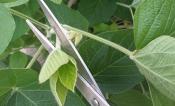
Soybean plants with fewer leaves yield more
Using computer model simulations, scientists predicted fewer leaves could boost yields and confirmed it works in real-world field trials—increasing soybean production by 8%. This yield gain, which far surpasses the one percent average, is needed to produce 70-100% more food by 2050 to feed an estimated 9.7 billion people.
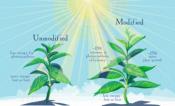
Scientists tweak photosynthesis and boost crop yield, proving it can be done
Researchers report in the journal Science that they can increase plant productivity by boosting levels of three proteins involved in photosynthesis.

Researchers root for more cassava research
Cassava makes up nearly 50 percent of the diet in parts of sub-Saharan Africa, where populations are projected to increase by more than 120% in the next 30 years. With stagnant yields for the last half-century, scientists realize the need to focus their efforts on this crop now.

Rapid gene analysis method accelerates photosynthesis studies
In a recent study, researchers used a rapid screening technique that genetically engineers plants--in real time--to investigate how to help plants realize their full potential on cloudy days.

Towards smarter crop plants to feed the world
Plant scientists at Lancaster University, with support from the University of Illinois, have made an important advance in understanding the natural diversity of a key plant enzyme which could help us address the looming threat of global food security.
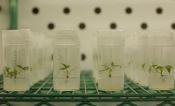
One crop breeding cycle from starvation
In the race against world hunger, we’re running out of time. By 2050, the global population will have grown and urbanized so much that we will need to produce 87 percent more of the four primary food crops – rice, wheat, soy, and maize – than we do today.
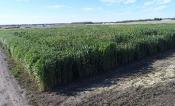
Enzymes with the potential to increase wheat yields
Wheat yields could be significantly increased thanks to varieties with a superior form of a common enzyme, according to new RIPE research.
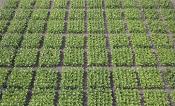
Molecular method promises to speed development of food crops
Modern plant breeders wait weeks or months, not centuries, to discover what the literal fruits of their labors might be; now, a study led has explored the strengths of a molecular method that reduces this wait time to a few days.
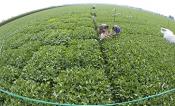
Team calls for an integrated field research network in the Midwest to address climate adaptation
Despite record-high yields of corn and soybean across the United States in 2014, climate scientists warn that rising temperatures and future extreme weather may soon put crop yields like this in danger.
